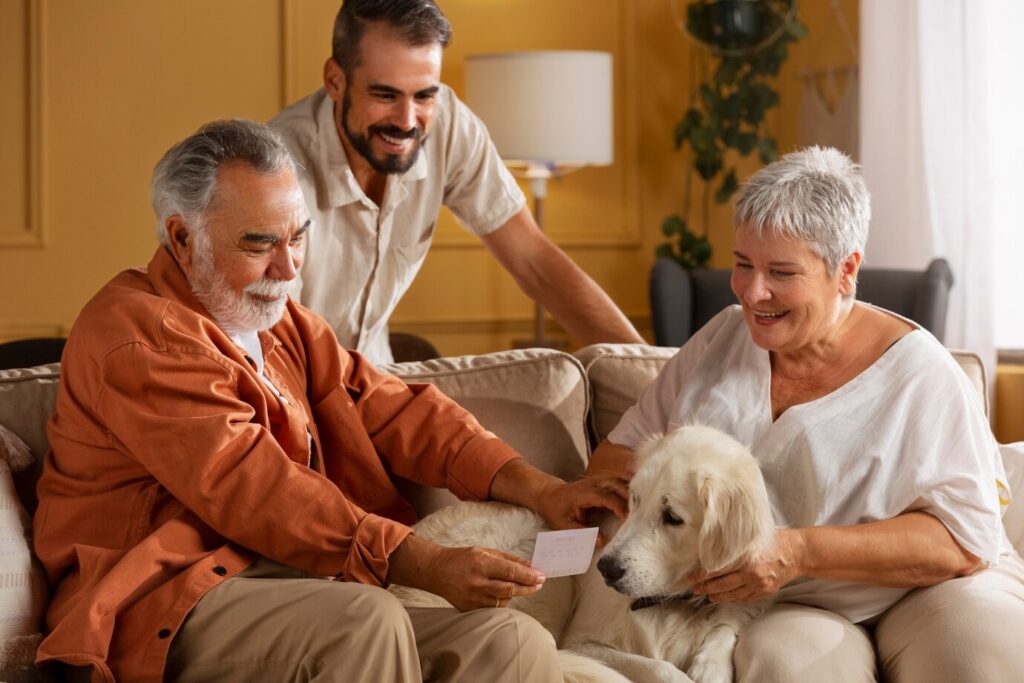Relocating can be daunting, especially for seniors facing the prospect of leaving behind familiar surroundings and cherished memories. When distance is added to the equation, the challenge can feel even greater. However, with careful planning, support, and a focus on staying connected, long-distance senior relocation can be a manageable and even enriching experience. In this guide, we’ll explore valuable tips to help seniors and their loved ones overcome challenges and maintain meaningful connections during this transition.
Start with Open Communication about Senior Relocation
Begin the relocation journey with open and honest communication. Seniors should express their concerns, preferences, and needs to their loved ones, while family members should actively listen and provide reassurance and support. Understanding each other’s perspectives lays a strong foundation for collaboration and mutual understanding throughout the relocation process.
Create a Detailed Plan
Planning is key when it comes to long-distance senior relocation. Create a detailed checklist outlining tasks such as finding a new residence, sorting belongings, coordinating movers, and arranging travel. Breaking down the process into manageable steps reduces stress and ensures nothing falls through the cracks.
Utilize Professional Assistance
Planning is key when it comes to long-distance senior relocation. Create a detailed checklist outlining tasks such as finding a new residence, sorting belongings, coordinating movers, and arranging travel. Breaking down the process into manageable steps reduces stress and ensures nothing falls through the cracks.
Preserve Memories
Sorting through a lifetime of possessions can be emotionally challenging for seniors. Encourage them to take their time and prioritize items with sentimental value. Consider creating digital photo albums, scanning important documents, or recording oral histories to preserve memories in a portable format that can easily accompany them to their new home.
Stay Connected Virtually
Technology offers powerful tools for staying connected across distances. Help seniors set up and familiarize themselves with communication platforms such as video calls, messaging apps, and social media. Regular virtual check-ins with family and friends can provide comfort and companionship during the transition.
Plan Visits and Reunions

Schedule regular visits to maintain in-person connections with loved ones. Coordinate family gatherings, reunions, or special events to provide seniors with something to look forward to and reinforce the sense of belonging. These visits also offer opportunities to explore the new surroundings together and create shared experiences.
Engage in Community Activities
Encourage seniors to get involved in community activities and social groups in their new location. Whether it’s joining a local club, attending religious services, or participating in volunteer opportunities, engaging with others can foster a sense of belonging and help seniors build new connections and friendships.
Seek Support Networks
Connect with local support networks and resources available for seniors in the new community. This may include senior centers, support groups, or professional services catering to the needs of older adults. Building a support system provides seniors with access to assistance, information, and social interaction as they adjust to their new surroundings
Embrace the Adventure
While relocation may initially seem daunting, encourage seniors to embrace it as a new chapter in their life’s journey. Remind them of the opportunities for growth, exploration, and discovery that await in their new environment. Encourage them to approach the experience with curiosity, optimism, and an open heart.
Conclusion
Long-distance senior relocation presents its share of challenges, but with careful planning, support, and a focus on staying connected, it can also be a transformative and rewarding experience. By fostering open communication, preserving memories, utilizing technology, and prioritizing self-care, seniors and their loved ones can navigate this transition with resilience, grace, and a sense of adventure. Together, they can create new memories, forge meaningful connections, and embrace the possibilities of the journey ahead.

